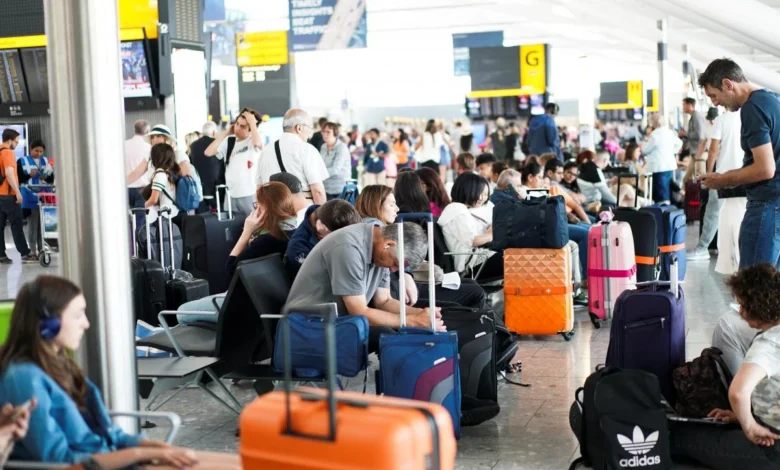The EU plans to reduce compensation for passengers for flight delays

Ukrainians who received temporary protection in the countries of the European Union are often faced with the need to travel by air transport due to a change of residence, visiting relatives, medical or bureaucratic needs. Flight delays and the associated costs are an unpleasant financial blow for many, especially when it comes to low-income refugees or families with children. Currently, the current rules allow for compensation for long delays, but the European Union is preparing a large-scale reform that can significantly reduce passengers’ chances of compensation. This will directly affect many Ukrainians.
What’s in force now: rules that protect passengers
According to current EU legislation (EU Regulation No. 261/2004), passengers have the right to fixed monetary compensation in the event of a significant flight delay:
250 euros — for flights up to 1,500 km,
400 euros — for flights with a length of 1,500 to 3,000 km,
600 euros — for flights over 3,500 km.
In addition, if the flight is postponed to the next day, the airline is obliged to provide hotel accommodation, transfer and meals at its own expense. Compensation is paid if the delay is at least 3 hours and if it was not caused by exceptional circumstances (eg weather conditions or a security threat).
For many years, these rules have allowed travelers to seek compensation even without legal recourse. Some EU countries have legal support services that help passengers file complaints.
What they want to change in Brussels
The European Commission is currently working on a project to update the aviation regulations. According to the publication Politico, the main goal of the innovations is to reduce the financial pressure on air carriers, which in the post-war period found themselves in a difficult economic situation. The proposed changes look like this:
For flights up to 3,500 km, compensation will be paid only in case of a delay of more than 5 hours, and the amount of the payment will decrease to 300 euros. For flights over 3,500 km, compensation will be provided after a 9-hour delay in the amount of 500 euros.
In addition, airlines will be able to avoid liability in the event of delays caused by staff strikes or sudden illnesses of pilots and flight attendants – factors that were previously recognized as internal problems of the companies.
These innovations can significantly narrow the range of cases in which the passenger will receive compensation. According to experts’ calculations, the number of compensation payments in the EU can be reduced by 73% if the project is adopted in its current form.
Why it is important for Ukrainian refugees
For many Ukrainian citizens in temporary protection status or seeking asylum in Europe, access to stable and affordable transportation is critical. They often fly on cheap flights with transfers, use the services of budget carriers, which already do not always fulfill their obligations properly. In cases of delays, the cost of food, new ticket, accommodation at the airport, etc. is covered from a modest budget, and it is the compensation from the carrier that is the only form of compensation.
If the proposed changes are approved, the situation will change dramatically. Passengers lose not only in the amount of compensation, but also in the availability of the mechanism itself — because it will become more difficult to prove the company’s responsibility, especially in situations with “force majeure” such as staff illnesses.
In addition, Ukrainians who buy tickets through intermediaries or tour operators often do not have a direct legal channel to appeal, especially if they are in a temporary status without a stable place of residence. For them, the loss of the right to compensation can have much more serious consequences than for EU citizens.
When it might work
At the time of preparation of the material, changes to the Regulations have not yet been finally approved. They are at the stage of internal coordination in the EU structures. The final decision needs the approval of both the European Commission and the European Parliament, as well as agreement with the member states. This means that even if approved, the new rules may not take effect until 2025.
However, observers say that support for air carriers in Brussels is now quite strong — particularly because of the need to maintain EU internal mobility in a period of rising fuel costs, inflation and complex post-war logistics.
What should passengers do now?
For Ukrainians who often travel by plane, it is important to record the details of their trips: keep boarding passes, keep track of delays, request written explanations from the airport staff. Until the new rules are approved, the current regulation is in effect — and you can use it to get compensation even under the old conditions.
You should also pay attention to the fare conditions when buying a ticket, use travel insurance policies and, if possible, book flights directly, without intermediaries.
Future changes in passenger compensation rules may significantly reduce the protection of the rights of Ukrainians, particularly vulnerable groups such as refugees. If the reform is approved, the responsibility for the financial consequences of delays will largely be transferred to passengers. This will require greater care, legal awareness and caution when planning trips.





